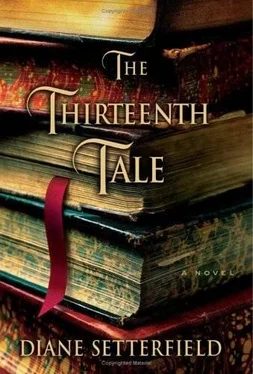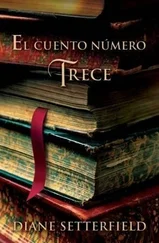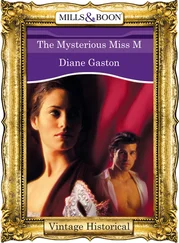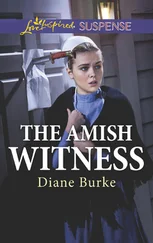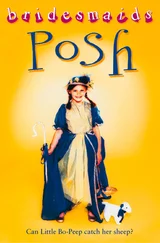Diane Setterfield - The Thirteenth Tale
Здесь есть возможность читать онлайн «Diane Setterfield - The Thirteenth Tale» весь текст электронной книги совершенно бесплатно (целиком полную версию без сокращений). В некоторых случаях можно слушать аудио, скачать через торрент в формате fb2 и присутствует краткое содержание. Жанр: Современная проза, на английском языке. Описание произведения, (предисловие) а так же отзывы посетителей доступны на портале библиотеки ЛибКат.
- Название:The Thirteenth Tale
- Автор:
- Жанр:
- Год:неизвестен
- ISBN:нет данных
- Рейтинг книги:4.5 / 5. Голосов: 2
-
Избранное:Добавить в избранное
- Отзывы:
-
Ваша оценка:
- 100
- 1
- 2
- 3
- 4
- 5
The Thirteenth Tale: краткое содержание, описание и аннотация
Предлагаем к чтению аннотацию, описание, краткое содержание или предисловие (зависит от того, что написал сам автор книги «The Thirteenth Tale»). Если вы не нашли необходимую информацию о книге — напишите в комментариях, мы постараемся отыскать её.
The Thirteenth Tale — читать онлайн бесплатно полную книгу (весь текст) целиком
Ниже представлен текст книги, разбитый по страницам. Система сохранения места последней прочитанной страницы, позволяет с удобством читать онлайн бесплатно книгу «The Thirteenth Tale», без необходимости каждый раз заново искать на чём Вы остановились. Поставьте закладку, и сможете в любой момент перейти на страницу, на которой закончили чтение.
Интервал:
Закладка:
"Once upon a time…"
Karen and Tom and Aurelius: three sets of eyes all resting on Emma and her storytelling. They would be all right together.
Unnoticed, I stepped back from the gate and slipped away along the street.
THE THIRTEENTH TALE
I will not publish the biography of Vida Winter. The world may well be agog for the story, but it is not mine to tell. Adeline and Emme-line, the fire and the ghost, these are stories that belong to Aurelius now. The graves in the churchyard are his; so is the birthday that he can mark as he chooses. The truth is heavy enough without the additional weight of the world's scrutiny on his shoulders. Left to their own devices, he and Karen can turn the page, start afresh.
But time passes. One day Aurelius will be no more; one day Karen, too, will leave this world. The children, Tom and Emma, are already more distant from the events I have told here than their uncle. With the help of their mother they have begun to forge their own stories; stories that are strong and solid and true. The day will come when Isabelle and Charlie, Adeline and Emmeline, the Missus and John-the-dig, the girl without a name, will be so far in the past that their old bones will have no power to cause fear or pain. They will be nothing but an old story, unable to do any harm to anyone. And when that day comes-I will be old myself by then-I shall give Tom and Emma this document. To read and, if they choose, to publish.
I hope that they will publish. For until they do, the spirit of that ghost-child will haunt me. She will roam in my thoughts, linger in my dreams, my memory her only playground. It is not much, this posthumous life of hers, but it is not oblivion. It will be enough, until the day when Tom and Emma release this manuscript and she will be able to exist more fully after death than she ever lived before it.
And so the story of the ghost girl is not to be published for many years, if at all. That does not mean, however, that I have nothing to give the world immediately to satisfy its curiosity about Vida Winter. For there is something. At the end of my last meeting with Mr. Lomax, I was about to leave when he stopped me. "Just one more thing." And he opened his desk and took out an envelope.
I had that envelope with me when I slipped unremarked out of Karen's garden and turned my steps back toward the lodge gates. The ground for the new hotel had been flattened, and when I tried to remember the old house, I could find only photographs in my memory. But then it came to me how it always seemed to face the wrong way. It had been twisted. The new building was going to be much better. It would face straight toward you.
I diverged from the gravel pathway to cross the snow-covered lawn toward the old deer park and the woods. The dark branches were heavy with snow, which sometimes fell in soft swathes at my passing. I came at last to the vantage point on the slope. You can see everything from there. The church and its graveyard, the wreaths of flowers bright against the snow. The lodge gates, chalk-white against the blue sky. The coach house, denuded of its shroud of thorns. Only the house had gone, and it had gone completely. The men in their yellow hats had reduced the past to a blank page. We had reached tipping point. It was no longer possible to call it a demolition site. Tomorrow, today perhaps, the workers would return and it would become a construction site. The past demolished, it was time for them to start building the future.
I took the envelope from my bag. I had been waiting. For the right time. The right place. The letters on the envelope were curiously misformed. The uneven strokes either faded into nothing or else were engraved into the paper. There was no sense of flow: Each letter gave the impression of having been completed individually, at great cost, the next undertaken as a new and daunting enterprise. It was like the hand of a child or a very old person. It was addressed to Miss Margaret Lea.
I slit open the flap. I drew out the contents. And I sat on a felled tree to read it, because I never read standing up.
Dear Margaret, Here is the piece I toldyou about. I have tried to finish it, and find that I cannot. And so this story that the world has made so much fuss about must do as it is. It is a flimsy thing: something of nothing. Do with it what you will.
As for titles, the one that springs to my mind is "Cinderella's Child, " but I know quite enough about readers to understand that whatever I might choose to call it, it will only ever go by one title in the world, and it won't be mine.
There was no signature. No name. But there was a story. It was the story of Cinderella, like I'd never read it before. Laconic, hard and angry. Miss Winter's sentences were shards of glass, brilliant and lethal.
Picture this, the story begins. A boy and a girl; onerich, one poor. Most often it's the girl who's got no gold and that's how it is in the story I'm telling. There didn't have to be a ball. A walk in the woods was enough for these two to stumble into each other's paths. Once upon a time there was a fairy godmother, but the rest of the time there was none. Thisstory is about one of those other times. Our girl's pumpkin is just a pumpkin, and she crawls home after midnight, blood on herpetticoats, violated. There will be no footman at the door with moleskin slippers tomorrow. She knows that already. She's not stupid. She is pregnant, though.
In the rest of the story, Cinderella gives birth to a girl, raises her in poverty and filth, abandons her after a few years in the grounds of the house owned by her violator. The story ends abruptly.
Halfway along a path in a garden she has never been to before, cold and hungry, the child suddenly realises she is alone. Behind her is the garden door that leads into the forest. It remains ajar. Is her mother behind it still? Ahead of her is a shed that, to her child's mind, has the look of a little house. A place she might shelter. Who knows, there might even be something to eat.
The garden door? Or the little house?
Door? Or house?
The child hesitates.
She hesitates. ..
And the story ends there.
Miss Winter's earliest memory? Or just a story? The story invented by an imaginative child to fill the space where her mother ought to have been?
The thirteenth tale. The final, the famous, the unfinished story.
I read the story and grieved.
Gradually my thoughts turned away from Miss Winter and to myself. She might not be perfect, but at least I had a mother. Was it too late to make something of ourselves? But that was another story. I put the envelope in my bag, stood up and brushed the bark dust from my trousers before heading back to the road.
I was engaged to write the story of Miss Winter's life, and I have done it. There is really nothing more I need do in order to fulfill the terms of the contract. One copy of this document is to be deposited with Mr. Lomax, who will store it in a bank vault and then arrange for a large amount of money to be paid to me. Apparently he doesn't even have to check that the pages I give him are not blank.
"She trusted you," he told me.
Clearly she did trust me. Her intentions in the contract that I never read or signed are quite unmistakable. She wanted to tell me the story before she died; she wanted me to make a record of it. What I did with it after that was my business. I have told the solicitor about my intentions regarding Tom and Emma, and we have made an appointment to formalize my wishes in a will just in case. And that ought to be the end of it.
But I don't feel I am quite done. I don't know who or how many people will eventually read this, but no matter how few they are, no matter how distant in time from this moment, I feel a responsibility toward them. And although I have told them all there is to know about Adeline and Emmeline and the ghost-child, I realize that for some that will not be quite enough. I know what it is like to finish a book and find oneself wondering, a day or a week later, what happened to the butcher or who got the diamonds, or whether or not the dowager was ever reconciled with her niece. I can imagine readers pondering what became of Judith and Maurice, whether anyone kept up the glorious garden, who came to live in the house.
Читать дальшеИнтервал:
Закладка:
Похожие книги на «The Thirteenth Tale»
Представляем Вашему вниманию похожие книги на «The Thirteenth Tale» списком для выбора. Мы отобрали схожую по названию и смыслу литературу в надежде предоставить читателям больше вариантов отыскать новые, интересные, ещё непрочитанные произведения.
Обсуждение, отзывы о книге «The Thirteenth Tale» и просто собственные мнения читателей. Оставьте ваши комментарии, напишите, что Вы думаете о произведении, его смысле или главных героях. Укажите что конкретно понравилось, а что нет, и почему Вы так считаете.
